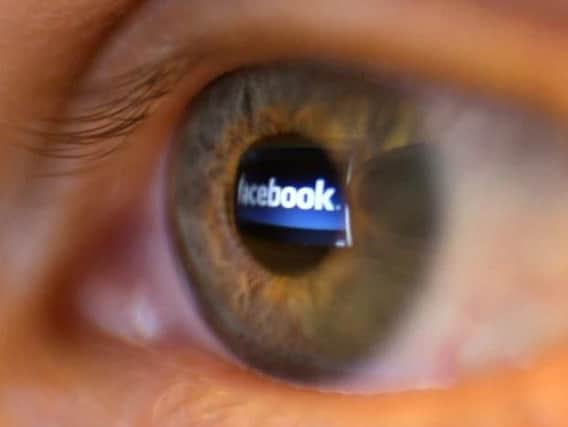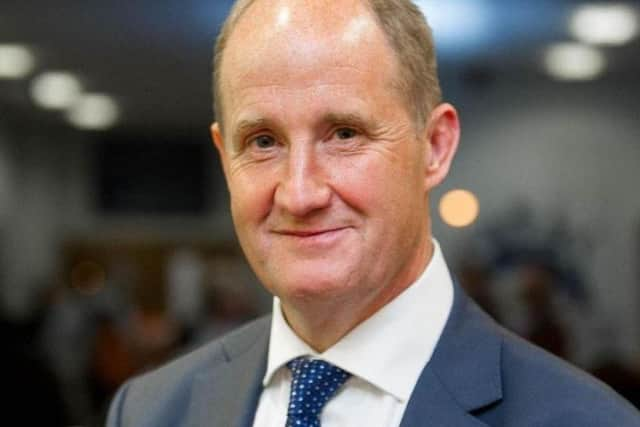Three Yorkshire and the Humber MPs' adverts removed from Facebook because they didn't declare who paid for them


An investigation by the JPIMedia Data Unit reveals that Facebook users are being targeted with thousands of adverts seeking to influence their opinion of local politics.
Analysis of its library shows that hundreds of individual MPs, elected officials and local authorities have placed nearly half a million pounds’ worth of promotions on the site in less than a year.
Advertisement
Hide AdAdvertisement
Hide AdUnder new rules Facebook introduced in October 2018, anyone placing a political advert must declare who paid for it.


Our investigation identified around 300 ads on the pages of local politicians and councils which were run without these disclaimers - including 40 placed on behalf of sitting MPs.
There is no suggestion that any of the adverts had been deliberate attempts to deceive constituents. They were all found and removed by Facebook.


In Yorkshire, Thirsk and Malton MP Kevin Hollinrake had two adverts removed for this reason, while Barnsley MP Stephanie Peacock had one advert removed and Scunthorpe MP Nic Dakin had two.
Advertisement
Hide AdAdvertisement
Hide AdThe office Sheffield City Region metro mayor Dan Jarvis also ran an advert without a disclaimer about who paid for it, as well as 12 adverts at a cost of £2,264 paid for by the area's combined authority.
And 21 adverts run by Conservative Tees Valley metro mayor Ben Houchen, valued at £1,429, did not have the disclaimer, while 152 adverts costing £27,955 were paid for by Mr Houchen himself through fundraising.
With a General Election looking likely in the coming months, campaigners have questioned the transparency of the system.
The Open Rights Group, which campaigns for internet users’ digital rights, said social media has become a “key battleground for political campaigns”.
Advertisement
Hide AdAdvertisement
Hide AdIts data and democracy officer, Pascal Crowe, said the “rules that shape our elections are ripe for reform”.
“For example, it is currently too easy to field a political advert on Facebook without revealing who is paying for that ad,” he said.
“It is now perhaps easier than ever to game the system and avoid being held to account."
The biggest spends in Yorkshire were for adverts on the pages of Conservatives Craig Whittaker, Rishi Sunak, Stuart Andrew and Andrea Jenkyns.
Advertisement
Hide AdAdvertisement
Hide AdMr Whittaker, MP for Calder Valley, had 18 placed on his Facebook page which were paid for by the Conservative Party or Calder Valley Conservatives at a cost of £1,486, as well as 25 paid for by the Independent Parliamentary Standards Authority.
Richmond MP Rishi Sunak, who recently became Chief Secretary to the Treasury, had 27 adverts at a cost of £1,028, while Stuart Andrew, MP in the Tory marginal seat of Pudsey, had 61 adverts paid for by the Conservative Party at a cost of £1,000.
Morley and Outwood MP Andrea Jenkyns had 11 adverts paid for by the Conservative Party at a cost of £1,000. Meanwhile Labour MP Rachel Reeves, representing Leeds West, paid for 46 adverts at a cost of £482.
A spokeswoman for Kevin Hollinrake said the two adverts that ran without a disclaimer were the result of an "administrative error" and that the MP had asked for systems to be put in place to stop it happening again.
Advertisement
Hide AdAdvertisement
Hide AdScunthorpe MP Nic Dakin said he spent £25 on six Facebook adverts, all paid for personally. He told The Yorkshire Post: "I am unaware of breaking any Facebook rules – no-one has advised me that I have or how. All of these adverts were run on my own Facebook page and paid for by me."
Barnsley MP Stephanie Peacock said: “I fully support efforts to increase transparency across social media platforms, and in that spirit can happily confirm the small amount of money used to promote my work to constituents on Facebook is kindly provided by my local constituency Labour Party."
She said: “Where the information digested on social media platforms like Facebook can have profound impacts on political processes and people’s lives as a result, transparency in social media advertising is crucial for those reading the posts to have confidence in the information they are seeing and trust in the source from which it is provided.
“I fully support efforts to increase transparency across social media platforms, and in that spirit can happily confirm the small amount of money used to promote my work to constituents on Facebook is kindly provided by my local constituency Labour Party.”
Advertisement
Hide AdAdvertisement
Hide AdOne advert for the Sheffield City Region’s transport plans ran without a disclaimer in January 2019 at a cost of £50. Since then all have run with disclaimers confirming they were paid for by the Sheffield City Region Mayoral Combined Authority.
A spokeswoman for the Sheffield City Region Combined Authority, where Barnsley MP Dan Jarvis is metro mayor, said: “Social media is a cost-effective way of reaching people from all our region’s communities, through the media channels that we know they are most likely to use.
"Such adverts are also far cheaper, and therefore a better use of public money, than advertising through traditional means such as in newspapers, on the radio or on billboards."
A spokesman for Tees Valley metro mayor Ben Houchen said the 21 adverts that ran without the disclaimer "ran immediately after Facebook introduced the change and we, like a lot of people, were getting used to the new rules".
Advertisement
Hide AdAdvertisement
Hide AdHe said all his adverts were paid for by fundraisers and smaller donations which fall below the reporting threshold of £1,500.
Mr Houchen said: “As the Tees Valley Mayor I have the best job in the world, and part of this is promoting all the fantastic things that are happening in our region.
“Local people will never be asked to pick up the bill for my Facebook advertising – not a single penny of taxpayers money has been used, and never will be.
“Since becoming Mayor I have held a number of fundraisers, most recently with Boris Johnson at Wynyard Hall where there was more than 300 people in attendance. Along with donations that have been declared to the Electoral Commission I have also received many smaller donations that do not need to be reported as they are below the reporting threshold of £1,500."
Advertisement
Hide AdAdvertisement
Hide AdHe added: “If I don’t shout about our area, nobody else will.
“My campaigns have reached hundreds of thousands of people who wouldn’t usually pick up a newspaper or watch the news on TV, and I will never apologise for doing all I can do to bang the drum for the Tees Valley.”
Unlike other Conservatives in Yorkshire, Rishi Sunak pays for his communications with constituents personally, with no party or state funds used.
He said: "I believe my constituents have a right to know what I am doing on their behalf. I use a variety of media to do that - including print, social media and direct distribution."
Advertisement
Hide AdAdvertisement
Hide AdMorley and Outwood MP Andrea Jenkyns said: “Facebook and social media in general are a great and engaging way to get in touch with constituents, show them what their MPs are doing and hear from them. They also give a chance to politicians to share their “less institutional” side.
"Facebook adverts are a great way to make sure that your content is shared with more people and I welcome the new regulations that enhance transparency. Political parties and MPs are realising the great potential of social media and shifting their investments from traditional media to the web, where most people is.”
